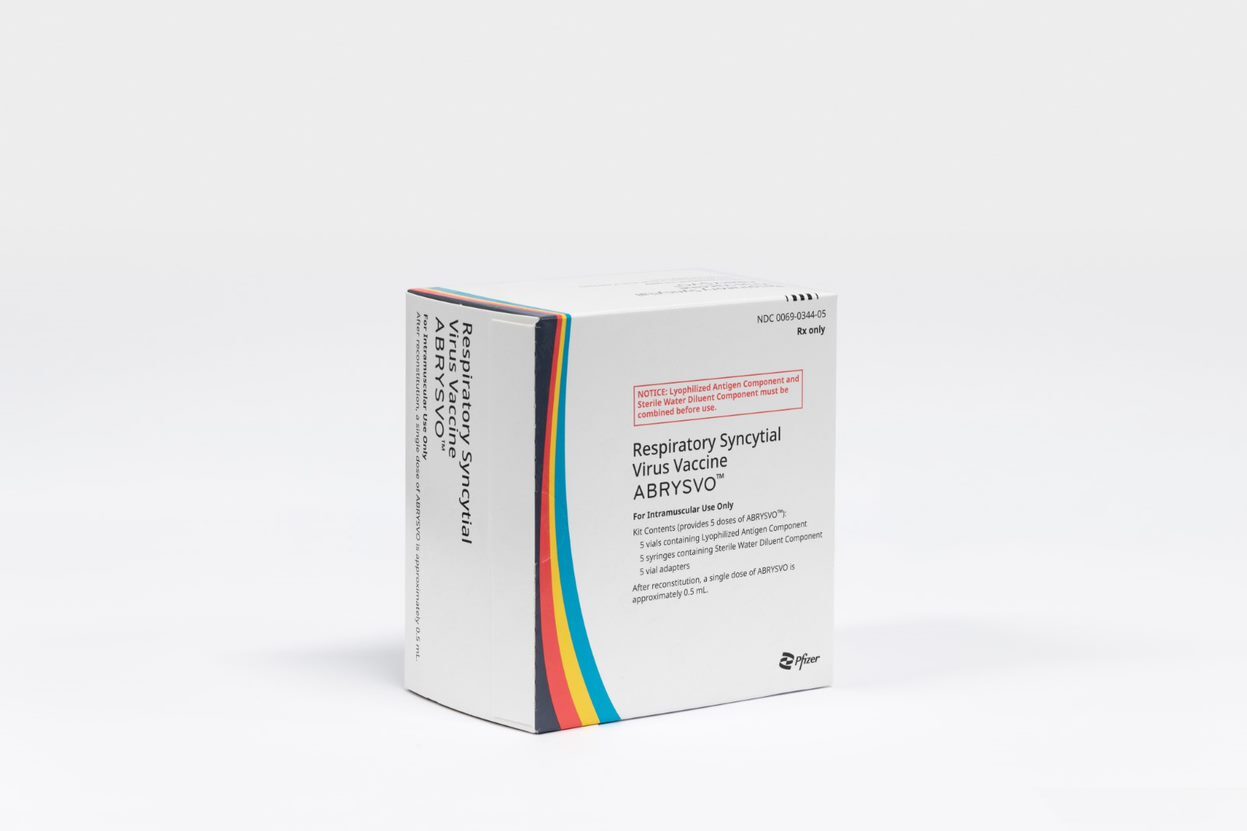closer look
What to know about protecting babies from RSV

Courtesy Pfizer
Until last year, there was nothing that could be done to protect against RSV infection, a seasonal respiratory illness that's particularly severe for babies whose lungs are still developing. But over the course of the spring and summer last year, several vaccines and antibody shots for older adults, pregnant people, and babies were all approved by the Food and Drug Administration and recommended for use by the CDC.
Last year's rollout was plagued by a number of hiccups, including a shortage of the shots and regulatory approvals that came too late in the year for all eligible mothers and babies. This year, drugmaker Sanofi says there's enough Beyfortus — the shot of protective antibodies for new babies — "for every eligible baby" in the U.S. But hurdles in rollout still remain.
"I think for a number of reasons, it's not going to be perfect," Nancy Foster, the American Hospital Association's vice president of quality and safety policy, told STAT's Helen Branswell. "Will there be more infants … inoculated? Yes, absolutely." Read more.
Politics
A more specific 'concept of a plan'
During the vice presidential debate Tuesday, Republican nominee JD Vance provided a bit more clarity on the Trump campaign's vague plans to make health insurance more affordable. Vance in prior campaign stops had said Donald Trump wants to deregulate the Affordable Care Act and sort people into risk pools to provide different kinds of insurance depending on how sick people are. During the debate, he clarified that he was referring to "reinsurance regulation" that Trump had implemented during his term in office.
Reinsurance is insurance for insurance — in this case, for the companies that offer plans on the Affordable Care Act exchanges. This lowers premiums for people getting Obamacare because extremely high patient bills are taken care of by these reinsurance programs.
For more on what Democratic vice presidential nominee Tim Walz said in reply, the nitty-gritty of what Vance was talking about, and whether it will work, check out Rachel Cohrs and John Wilkerson's story.
Infectious Disease
Watch out for ice machine biohazards
A new CDC report details outbreaks of an unusual bacterial infection that researchers traced back to a single brand of ice machines used in four different hospitals. Ice and water from the machines are used for bed baths, swallow evaluations, and ice packs that may touch surgical incisions or insertion sites.
The outbreaks — 46 of them spanning from 2020 to 2024 — occurred in three hospitals in California and one in Colorado. The bacterium, Burkholderia multivorans, is commonly found in cystic fibrosis patients but is rare otherwise, which is what raised clinicians' alarm. It can be antibiotic-resistant and lead to severe infections.
The bacterium was found in ice machines in three of the four hospitals, though researchers aren't sure where it originally came from. They recommended hospitals track how water could transmit infections in their hospital and avoid using tap and ice water when outbreaks are detected.
In related news, hospitals around Asheville, N.C. — including the embattled HCA Mission Hospital — are struggling without access to high-pressure water due to Hurricane Helene, which means basic tasks like food preparation, flushing toilets, and showers aren't possible.


No comments